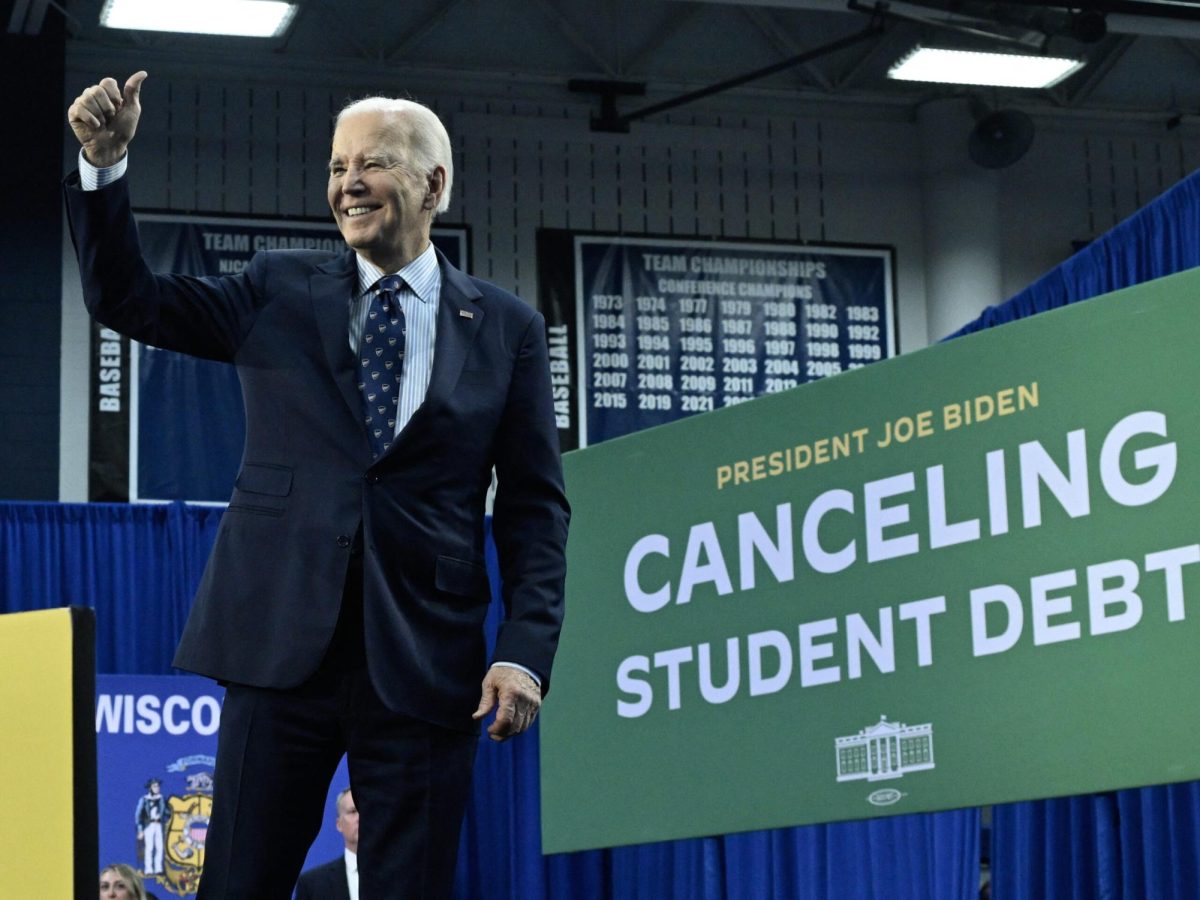She has shed 20 pounds since she commenced working, shivering yet famished as she heads to the NYC subway.
Her mind is thinking about how many tips she made. she did $120, she reckons.
“This can help me survive a month.”
$120 to survive for a month in New York is nearly impossible. But “Jane” makes it possible with much effort.
Jane, who, for legal reasons, can’t provide her name, is an international student based in New York.
Her free days are interlaced with shifts at a restaurant, striving to finance her education.
She says her parents are already in debt paying for an almost unreachable school. She is an F-1 student, which means to earn a visa she must be enrolled in an academic educational program, a language training program or a vocational school. She must be full-time, she must speak English proficient and she must maintain a permanent residence abroad that she has no intention of giving up.
And by definition, she “must have sufficient funds available for self-support during the entire proposed course of study.”
F-1 students are only allowed to work off-campus with specific authorization; they must adhere to the regulations set by USCIS and the Department of Homeland Security.
“This makes the international experience harsher than imagined,” Jane reflects.
Jane is not the only one who faces this challenge. The Institute of of International Education states that there were 1,057,188 international students studying in the U.S. last year, up 100,000 from the year prior.
“Most people working here are pure to finance school; school for us is super expensive, and we still have double the tuition than a U.S citizen,” Telma Zelaya says.
Zelaya, an international student from Honduras, resides in Quincy, Massachusetts, studying at Eastern Nazarene College.
Due to Quincy’s high prices, Zelaya’s university job barely covers her tuition.
“All of my salary goes to my tuition. My entire paycheck. That’s what I meant when I said we all work to pay for school here,” Zelaya added.
She is undergoing stressful situations and struggling to find internships, restricted to 20 hours a week when a U.S. citizen can work 40.
“I don’t even get pleasure money; I don’t get to go out to have fun; all my money goes directly to the school,” Zelaya said.
With much anxiety and frustration, she juggles summer classes plus reduced work hours.
Summer classes are twice as expensive as regular semester classes.
Zelaya said, “In the summer, they cut even more, my hours at merely 16 hours per week when in summer I could have worked 40 hours.”
This creates anxiety and frustration, denying them the ability to have fun and a pleasant college experience like her classmates.
In her senior year, Zelaya is only working 13 hours a week. “Work is minimal as an international.”
In contrast to Zelaya’s situation, “Cristina”, originating from Costa Rica, also opted to enroll in summer classes. However, the frustration stemming from limited work opportunities, the inability to explore the wonders of Massachusetts, and the challenge of affording even a simple cup of coffee led her to seek employment off-campus.
“I went to work at a pizzeria, but I just lasted two weeks. The school found out what many internationals were doing, and they warned us, but honestly, those two weeks made me the happiest,” Cristina says.
Cristina expressed that, for the first time, she had a little extra money for leisure activities. However, she conveyed a profound sadness and hopelessness due to the necessity of quitting her job.
“If I would’ve continued, I was going to be able to finance all my summer classes,” Cristina adds.
Regrettably, this is the harsh reality confronting international students. They feel the U.S. government needs to pay more attention to their challenges, compounded by exorbitant tuition fees and stringent work limitations. These factors collectively make it exceedingly difficult for international students to enjoy a positive college experience.
An international student’s everyday life includes stress over finances and over how they should pay for basic everyday necessities.
These days, Cristina works as an assistant coach outside Quincy, a job requiring a 40-minute commute. However, this is the only way she can afford her daily expenses.
“I don’t regret doing this, even though I’m scared all the time (of being caught), even though sometimes it is exhausting, I can tell it pays off, not like the joke they give you in the campus jobs,” Cristina concludes.
Ariana Ordoñez, an international student at Lipscomb University who also hails from Honduras, Central America, is finding difficulties in getting an OPT.
Optional Practical Training, also known as OPT, is a temporary employment that an international student can engage in; it must be related to their central area of study, and it can be for up to 12 months after completing their academic program.
‘Finding an OPT is hard; no one wants to sponsor our work visas. I have applied to so many, and I’ve been denied in all of them,” Ordoñez says.
Ordoñez, an outstanding honors student, voiced her frustration, asserting her superior qualifications compared to other applicants. She recognizes that companies often reject her because they prefer not to sponsor individuals with legal documentation.
“It’s incredibly challenging to obtain an OPT, and on top of that, there’s a fee for the application process,” Ordoñez remarks. “Currently, I would need to pay $400 to the U.S. It feels like there’s never enough money for them.”
The struggles and the numbers keep adding, making this a true discouragement for international students who have given so much money for education and still don’t see the fruits of it.
Financing a major in the U.S. as an international student is quite difficult, especially given the added constraints of work restrictions.
Francia, like Cristina, decided to opt for the under-the-table jobs during the school year and work her summers at Amazon.
“I’ve worked most of my summers at Amazon, and that’s the only way I can finance my everyday expenses; I work every day for two months straight and make enough money for the school year,” she expresses.
Earning an average salary enables Francia to experience a less stressful semester, as she has successfully managed to stabilize her financial situation.
One might wonder why Francia’s parents don’t offer support, but in her culture, it would be considered impractical for them to provide financial assistance. Her parents already contribute significantly to her tuition fees.
She promised to gain money for her everyday life, no matter the costs or the danger.
An accounting major, Emily Flores attends Trevecca University in Nashville, Tennessee. Flores has committed to working as much as possible to cover her daily expenses.
“I’m lucky enough that my university has many job opportunities for us internationals,” Flores says.
Flores holds two on-campus positions: she serves as an academic coach and works in the cafeteria. Unlike most colleges, where job opportunities for international students are limited, she can secure these roles at her university.
Flores emphasizes, “In my opinion, the significant amount of money we contribute to the United States should afford us the freedom to work where we choose.”
“Jane”, who attends Mercy University, faces the challenge of commuting between the Dobbs Ferry campus and her regular job.
“Honestly, I’ve attempted to secure on-campus jobs, but it’s nearly impossible, given that most positions are Federal Work-study,” she explains.
Despite the hurdles, Jane perseveres, maintaining one of the highest GPAs in her field. “No matter how much I work, my studies always take precedence, and while it’s demanding, it’s worth it.”
Expressing dissatisfaction with the university job system, Jane highlights its preferential treatment towards U.S. citizens, who have more flexibility in choosing employment opportunities.
The limitations in work push international students to take controversial measures.
They disregard the risks of obtaining a fake social security number to finance their daily expenses. While some may benefit from advantages on campus, they are still limited to minimum wage salaries.
Jane leads a double life yet thrives in every aspect, prompting her to question why the U.S. restricts them when it’s evident that international students possess unique resilience.
Arriving at her dorm with weary legs from her under the table position, she opens her laptop, completes her homework, and prepares to face the next day without excuses.
“The choice is already made for us.”










